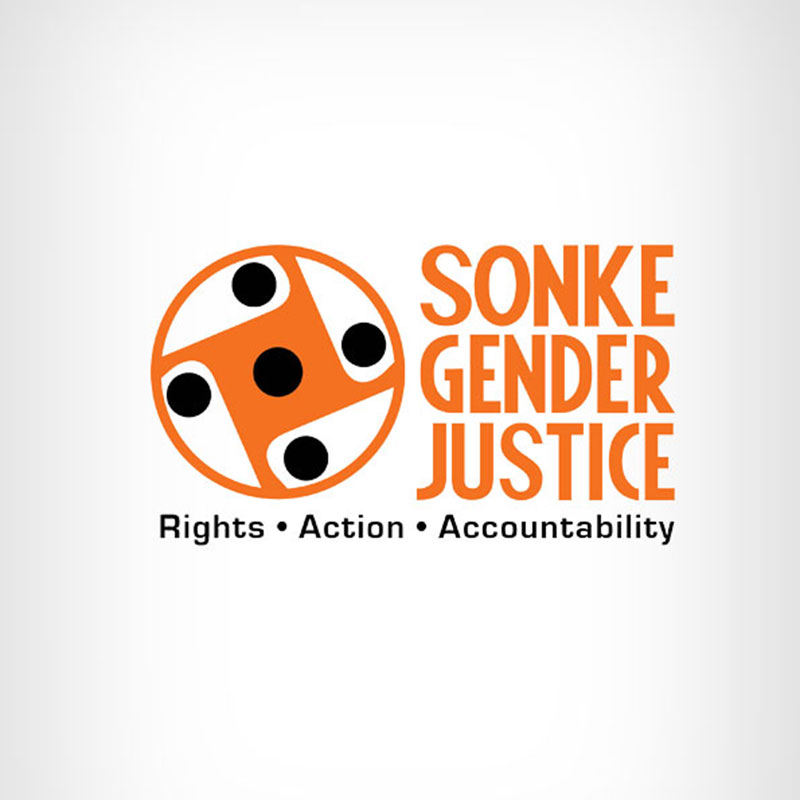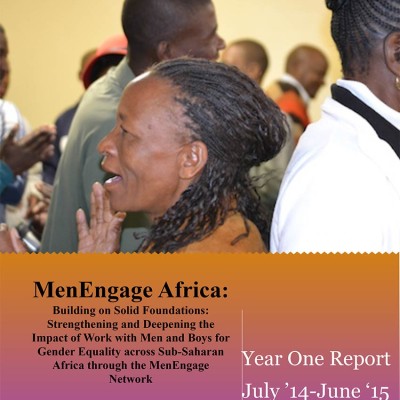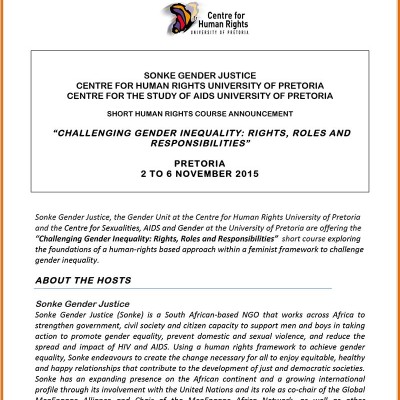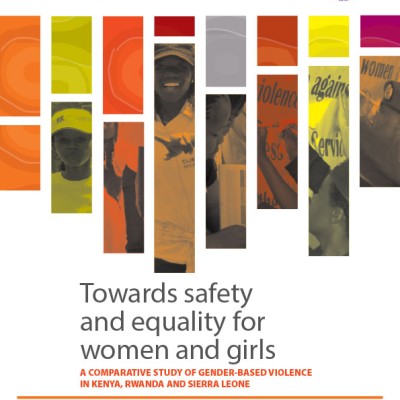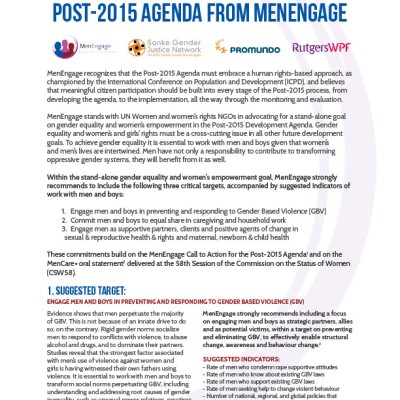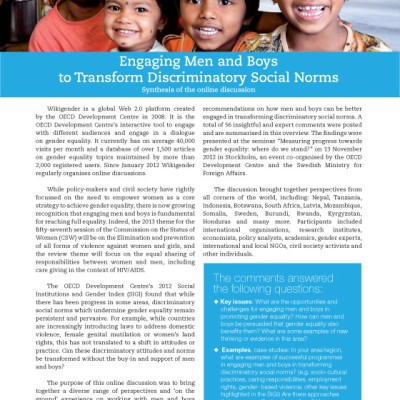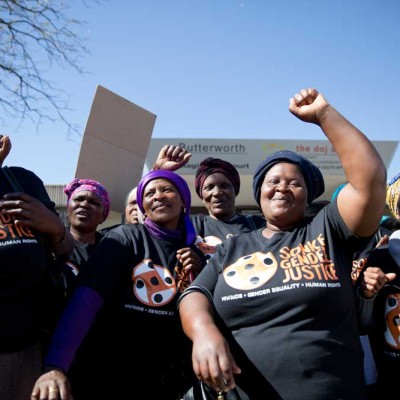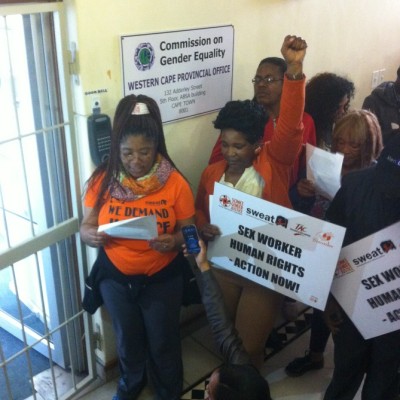The Commission for Gender Equality (CGE) Monitor initiative was established to ensure that the Commission for Gender Equality delivers on its mandate to advance gender transformation in South Africa. The CGE monitor was established because of long-standing concerns amongst human rights organisations about the CGE’s limited delivery on its mandate. The organisations who make up the CGE monitor are committed to the existence of a strong, pro-active and successful CGE.
Organisations comprising the CGE Monitor
The CGE Monitor is made up of women’s rights, gender equality and human rights organisations from across the country all involved in promoting gender equality and advancing the needs and rights of women some involved in advocacy and others representing or providing services to different groups or categories of women such as women with disabilities, rural women, HIV positive women, domestic workers, survivors of gender based violence and other human rights violations and gender non-conforming people.
The Women’s Legal Centre (WLC) and Sonke Gender Justice jointly steer the CGE Monitor, but the WLC is the formal secretariat of the CGE Monitor.
Objectives of the CGE Monitor
The overall objective of the CGE Monitor is to ensure the effective function of the CGE so that it delivers on its mandate to advance gender equality in South Africa by carrying out the core tasks for which it is responsible: monitoring, investigating, researching, educating, lobbying, advising and reporting on issues concerning human rights and gender equality, with a particular focus on government departments, media, traditional and religious leaders and the private sector.
The CGE Monitor intends to attain this objective by monitoring the performance of the CGE and by holding the CGE accountable for delivering on its mandate.
Funding
The activities of the CGE Monitor are funded by the Open Society Foundation and Heinrich Böell Foundation.
CGE Monitor Activities
The CGE Monitor will monitor the CGE’s performance in the following areas:
- Does the CGE monitor whether government creates and implements laws, policies and programmes that are intended to advance gender equality.
- Does the CGE monitor whether government takes action to support and promote the prevention of gender based violence and the spread and impact of HIV and AIDS and other manifestations of gender inequality.
- Does the CGE take action to increase public awareness of the CGE’s role and duties to attain gender equality and how the public can contribute to, access or participate in CGE activities.
Specific activities that the CGE Monitor will conduct include:
- Draft a discussion document setting out the powers, duties and functions of the CGE, a review of actions taken in 2010 and 2011 and the CGE Monitor’s short and long-term expectations of the CGE.
- Meet with the newly appointed CGE chair and commissioners to introduce the CGE Monitor, its objectives and planned activities.
- Monitor the CGE’s performance over the first six months of its new term. This “Six months review” will be informed by civil society submissions on its interactions with the CGE during this period and reported through a potential SMS and online monitoring form, the CGE’s reported activities, media reports on the CGE’s activities and individual submissions from community members.
- Provide tools and monitoring mechanisms to civil society organisations so that they can monitor the CGE’s delivery on its mandate and hold the CGE to account for failing to deliver on its mandate.
- Strengthen the capacity of mainstream and community media to educate the public about the CGE and to report on its work.
- Engage in media advocacy on the CGE including: writing key investigative pieces about the CGE’s work to be featured in print, and on radio and television, issuing advocacy alerts regarding legislation and policy reviews, calls to action via bulk sms, Facebook and Twitter.
- Increase public awareness of the CGE’s role and provide communities with concrete mechanisms to report on their experiences with the CGE including:
- PSAs and talk shows about the CGE on community and commercial radio describing the CGE’s duties and responsibilities,
- Murals in high traffic areas drawing attention to the existence and work of the CGE,
- Ambush theatre about the CGE in high pedestrian traffic areas,
- A CGE monitor SMS line for the public to report on their interactions with the CGE.
- Draft six month assessment, titled ‘‘Setting the Agenda” which looks at what the CGE prioritised during the 100 days and host a public dialogue to share the findings with key stakeholders, including the media.
- Issue quarterly report cards measuring CGE performance against their mandate and especially on key priorities identified by the campaign and conduct four media briefings with journalists to appraise them of campaign activities and the work of the CGE.
- Engage in civil disobedience if necessary to draw attention to CGE inaction and to apply the necessary pressure to prompt the commission to do its work proactively.

